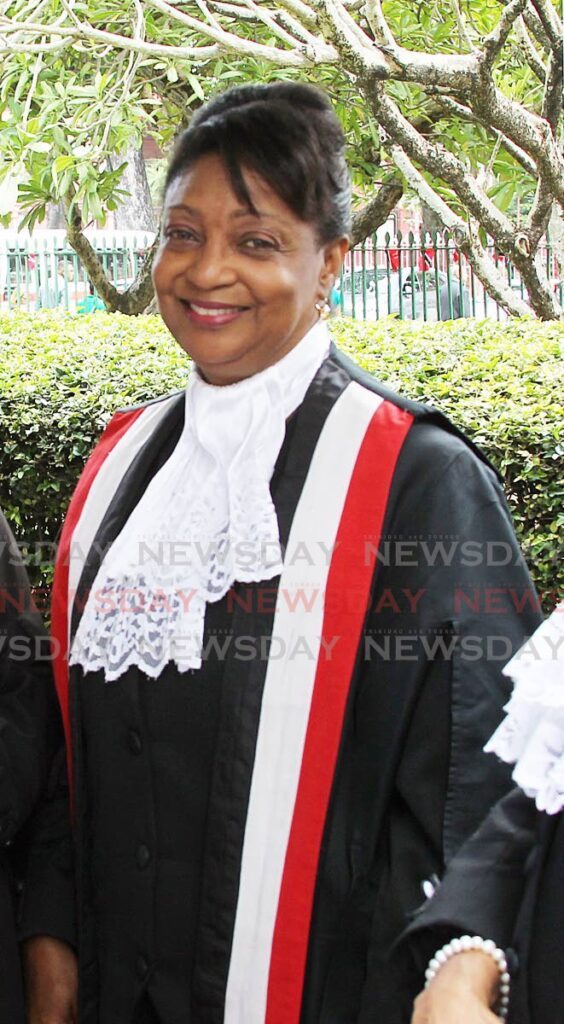Appeal Court reduces penalties for buggery

The Court of Appeal has reduced penalties for acts of buggery (anal sexual intercourse) and other acts of serious indecency, while at the same time maintaining their criminal status.
In a majority ruling, Justices of Appeal Nolan Bereaux and Charmaine Pemberton upheld an appeal by the Attorney General against a ruling by the High Court which deemed portions of local sexual offences law to be unconstitutional because they criminalised sexual relations between consenting adults of the same sex. Justice Vashiest Kokaram dissented.
The 196-page decision was handed down on March 25.
In April 2018, Justice Devindra Rampersad struck down TT’s colonial-era laws in favour of Trinidadian LGBTQIA+ activist Jason Jones who filed a constitutional claim in 2017.
Rampersad had modified sections 13 and 16 of the Sexual Offences Act, which criminalised buggery and serious indecency between consenting adults, declaring them unconstitutional.
In modifying the law, the Appeals Court judges reduced the penalty for buggery from 25 years to five years imprisonment while ruling that buggery remains a criminal offence under section 13.
They also modified certain provisions of section 16 of the Act, which criminalised acts of "serious indecency," and disapplied section 16(1) and 16(2)(a) and (b) for consenting adults, whether in a heterosexual or same-sex relationship.

This means that private consensual sex acts between adults, including same-sex intimacy, are no longer criminalised under this section.
However, the court reinstated section 61 of the Offences Against the Person Act (1925) in place of previously repealed provisions, maintaining legal prohibitions against acts of gross indecency with a penalty of up to two years of imprisonment.
Additionally, protections for minors remain intact.
The court upheld section 16(1) and 16(2)(c) as applicable to individuals covered under section 20 of the Children Act.
In their ruling, the judges said it was Parliament’s responsibility to decide if buggery and gross indecency should be fully decriminalised.
"Judges cannot change the law. We give effect to Parliament’s intention. Buggery remains a crime in Trinidad and Tobago pursuant to section 13 of the Act, but is now punishable by a term of imprisonment of five years," the ruling stated.
“It is, therefore, left to Parliament to repeal the criminalisation of buggery and the related offence of gross indecency by legislation. It is an emotive issue which engages vibrant discussion in the court of public opinion.
“Parliament is ultimately responsible for ensuring that laws reflect the evolving standards of a democratic society. That is their role and function. Any provisions found to be unconstitutional must be taken from the statute books by Parliament through legislative reform and not by judicial overreach,” Pemberton said.
“In my judgment the clear intention here is for the existing law to continue to prevail. Buggery remains a crime in Trinidad and Tobago,” Bereaux said.
Pemberton, in agreeing with Bereaux’s reasoning, focused on the structural and constitutional interpretation of whether sections 13 and 16 qualified as "saved law."
In his lawsuit, Jones had asked the court to determine whether the State had the constitutional authority to criminalise same-sex intimacy.
Rampersad’s modification of the sections introduced the element of consent, as section 13 outlawed anal intercourse between two men, and a man and woman. At the time, he said it was a “non-intrusive” option.
Speaking on the issue, Jones questioned the retention of the laws.

"Regardless of the savings-law clauses and the Constitution, we are talking about the rights of some 100,000 LGBTQIA+ citizens in TT. Why are we spending all this money and retaining these laws?”
“The modernisation of our democracy is at stake here and this is the beginning of this modernisation.”
Fyard Hosein, SC, Keisha Prosper and Vincent Jardine represented the Attorney General.
Richard Drabble KC, Rishi Dass, SC, and Marina Narinesingh represented Jones.
The Equal Opportunity Commission had a listening brief as the first interested party while former attorney general John Jeremie, SC, represented the Council of Evangelical Churches.

Comments
"Appeal Court reduces penalties for buggery"